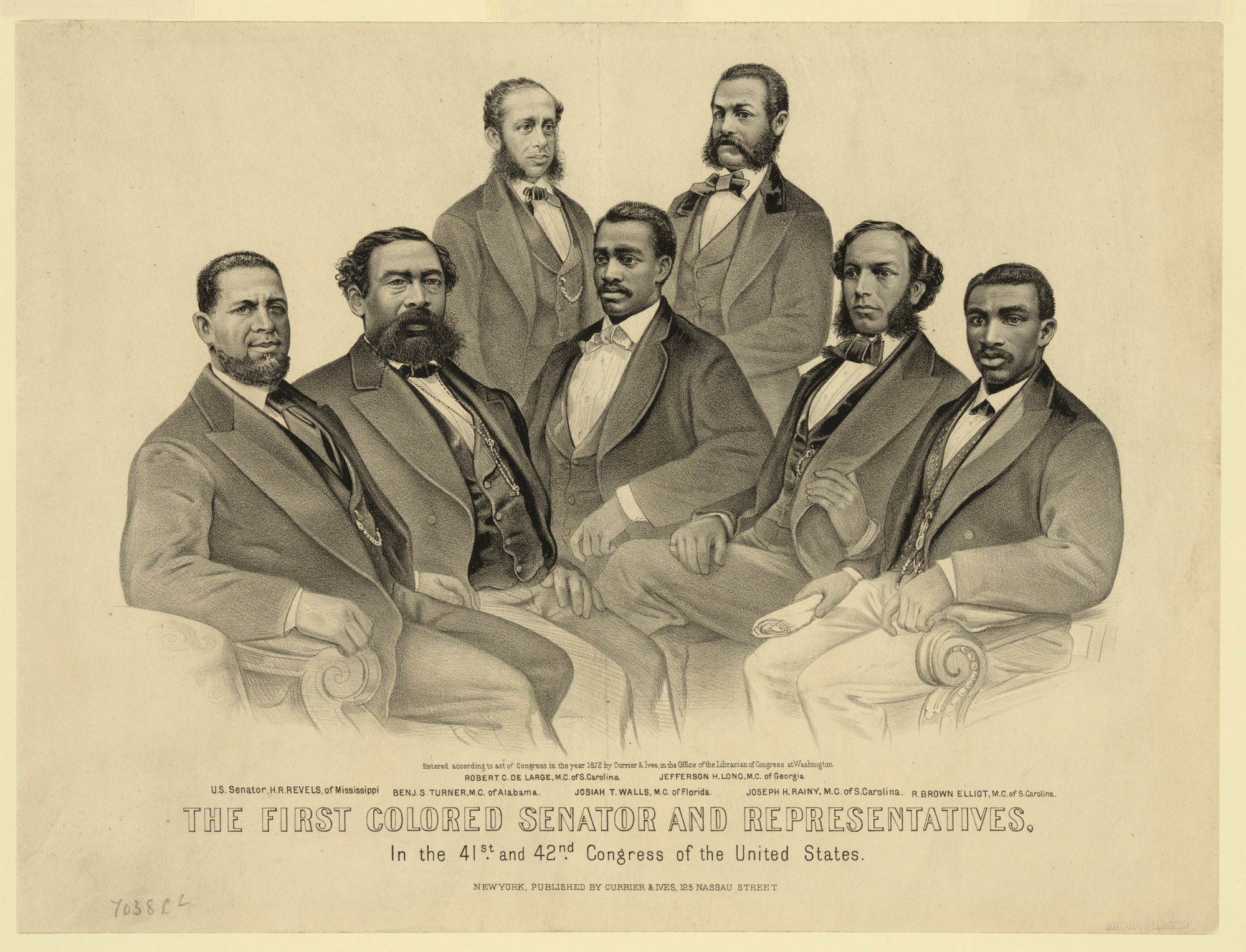Report on the Appointment of Alex Whiting and its Alignment with Global Sustainable Development Goals
Executive Summary
This report details the appointment of Alex Whiting as a professor of practice at Harvard Law School (HLS), effective July 1. Mr. Whiting’s extensive career in international and domestic prosecution directly aligns with and advances the United Nations Sustainable Development Goals (SDGs), particularly SDG 16: Peace, Justice and Strong Institutions. His return to academia signifies a continued commitment to fostering the next generation of leaders dedicated to upholding the rule of law and building effective, accountable, and inclusive institutions globally.
Advancing SDG 16: Peace, Justice and Strong Institutions
Mr. Whiting’s professional history is a testament to the principles of SDG 16, which seeks to promote peaceful societies, provide access to justice for all, and build strong institutions. His work has consistently focused on ensuring accountability and combating impunity for the most serious international crimes.
- International Criminal Court (ICC): As Investigations and Prosecutions Coordinator, he contributed to the core mission of the ICC, a cornerstone institution for global justice that prosecutes genocide, war crimes, and crimes against humanity.
- International Criminal Tribunal for the former Yugoslavia (ICTY): His role as a prosecutor was instrumental in holding individuals accountable for atrocities, a critical step in post-conflict reconciliation and the strengthening of international law.
- Kosovo Specialist Prosecutor’s Office: Serving as Head of Investigations, Deputy, and Acting Specialist Prosecutor, he worked to build a robust and credible justice mechanism, essential for peace and stability in the region.
- U.S. Federal Prosecution: His service with the Department of Justice and the U.S. Attorney’s Office supported the development of effective and accountable national justice systems, a key target of SDG 16.
Fostering SDG 4: Quality Education
In his capacity as a professor at Harvard Law School, Mr. Whiting directly contributes to SDG 4: Quality Education. He is responsible for educating and training future legal professionals who will go on to shape and lead the very institutions vital to achieving sustainable development.
- He has taught courses on war crimes prosecution, federal prosecution, and evidence, providing students with specialized knowledge.
- He has supervised students on projects for international criminal tribunals and NGOs, offering practical experience in the field of global justice.
- This educational leadership ensures a continued supply of skilled professionals committed to the principles of peace and justice for future generations.
Career Trajectory in Support of Global Justice
Mr. Whiting’s career demonstrates a sustained commitment to strengthening legal frameworks at both the national and international levels, reflecting the multi-faceted nature of SDG 16.
- 1991-2002: As a U.S. Federal Prosecutor, he worked within national systems to uphold civil rights and federal law, reinforcing strong domestic institutions.
- 2002-2007: As a Prosecutor at the ICTY, he transitioned to the international stage, focusing on accountability for mass atrocities.
- 2010-2013: At the ICC, he helped coordinate complex international investigations and prosecutions, strengthening a key global justice institution.
- 2019-2023: In the Kosovo Specialist Prosecutor’s Office, he engaged in institution-building in a post-conflict context, a vital component of sustainable peace.
Scholarly Contributions and Partnerships for the Goals (SDG 17)
Mr. Whiting’s scholarly work and collaborations exemplify SDG 17: Partnerships for the Goals. Through co-authored publications and participation in multi-stakeholder task forces, he has helped build a global partnership for sustainable development centered on justice and the rule of law.
- Co-authored Works: His books, including “International Criminal Law: Cases and Commentary” and an edited volume on the first ICC prosecutor, foster a shared understanding and advance the discourse on international justice.
- Journal Publications: Articles in the Journal of International Criminal Justice and other publications contribute to the global knowledge base on strengthening judicial practice.
- Task Force Participation: His service on task forces for the American Society of International Law and the American Bar Association demonstrates a collaborative approach to developing policy and standards for international criminal justice, thereby strengthening institutional effectiveness.
SDGs Addressed in the Article
- SDG 16: Peace, Justice and Strong Institutions: The article extensively details Alex Whiting’s career in international and domestic criminal law, focusing on his work with institutions like the International Criminal Court, the International Criminal Tribunal for the former Yugoslavia, and the Kosovo Specialist Prosecutor’s Office. His work involves prosecuting war crimes and strengthening legal frameworks, which are central to this goal.
- SDG 4: Quality Education: The article’s main subject is Whiting’s return to Harvard Law School as a professor. It highlights his role in teaching and mentoring students in fields related to international law, justice, and human rights, contributing directly to quality education.
Specific SDG Targets Identified
SDG 16: Peace, Justice and Strong Institutions
- Target 16.3: Promote the rule of law at the national and international levels and ensure equal access to justice for all.
This target is addressed through Whiting’s extensive work as a prosecutor at both federal and international levels. The article mentions his roles in the U.S. Department of Justice, the International Criminal Court (ICC), and the International Criminal Tribunal for the former Yugoslavia (ICTY), where he “supervised prosecutions” and worked to hold individuals accountable for major crimes, thereby promoting the rule of law and access to justice. - Target 16.a: Strengthen relevant national institutions, including through international cooperation, for building capacity at all levels… to prevent violence and combat… crime.
Whiting’s career embodies this target. His work in the “Kosovo Specialist Prosecutor’s Office” and at the “International Criminal Court” represents direct involvement in strengthening international judicial institutions designed to combat the most serious crimes. Furthermore, his service on the “American Bar Association international criminal justice standards task force” contributes to building capacity and setting standards for these institutions.
SDG 4: Quality Education
- Target 4.7: By 2030, ensure that all learners acquire the knowledge and skills needed to promote sustainable development, including, among others, through education for… a culture of peace and non-violence, [and] global citizenship…
This target is relevant through Whiting’s academic role at Harvard Law School. The article states he “has taught courses on war crimes prosecution, federal prosecution, government lawyering, and evidence.” By teaching these subjects and supervising “students working on legal projects for international criminal tribunals,” he is directly equipping the next generation of lawyers and leaders with the knowledge and skills to promote peace, justice, and the rule of law on a global scale.
Indicators for Measuring Progress
SDG 16: Peace, Justice and Strong Institutions
- Implied Indicator for Target 16.3: The article implies progress through the description of Whiting’s activities. The number of investigations and prosecutions he oversaw at the ICC and ICTY serves as a qualitative indicator of efforts to ensure accountability for international crimes. The article mentions he was “head of investigations” and “prosecutions coordinator,” pointing to the functioning of systems designed to provide justice.
- Implied Indicator for Target 16.a: The existence and operational capacity of the institutions mentioned in the article (ICC, ICTY, Kosovo Specialist Prosecutor’s Office) are themselves indicators of strengthened international justice mechanisms. Whiting’s active roles within these bodies, as well as his contributions to task forces on ICC policy and ABA standards, signify ongoing efforts to build and maintain their capacity.
SDG 4: Quality Education
- Implied Indicator for Target 4.7: The article implies an indicator through the mainstreaming of relevant topics into higher education curricula. The existence of “courses on war crimes prosecution” and student projects for “international criminal tribunals” at a leading institution like Harvard Law School indicates that education for global citizenship and a culture of peace is being integrated into legal training.
Summary Table of SDGs, Targets, and Indicators
| SDGs | Targets | Indicators |
|---|---|---|
| SDG 16: Peace, Justice and Strong Institutions | 16.3: Promote the rule of law at the national and international levels and ensure equal access to justice for all. | Implied: The functioning of prosecutorial and investigative offices (e.g., Whiting’s roles as “head of investigations” and “prosecutions coordinator”) within international tribunals like the ICC and ICTY. |
| 16.a: Strengthen relevant national institutions, including through international cooperation, for building capacity… to… combat… crime. | Implied: The existence and operation of international judicial bodies such as the International Criminal Court, Kosovo Specialist Prosecutor’s Office, and the work of task forces setting international criminal justice standards. | |
| SDG 4: Quality Education | 4.7: Ensure that all learners acquire the knowledge and skills needed to promote sustainable development, including… a culture of peace and non-violence… | Implied: The integration of topics like “war crimes prosecution” and projects for “international criminal tribunals” into the curriculum of a major educational institution (Harvard Law School). |
Source: hls.harvard.edu







